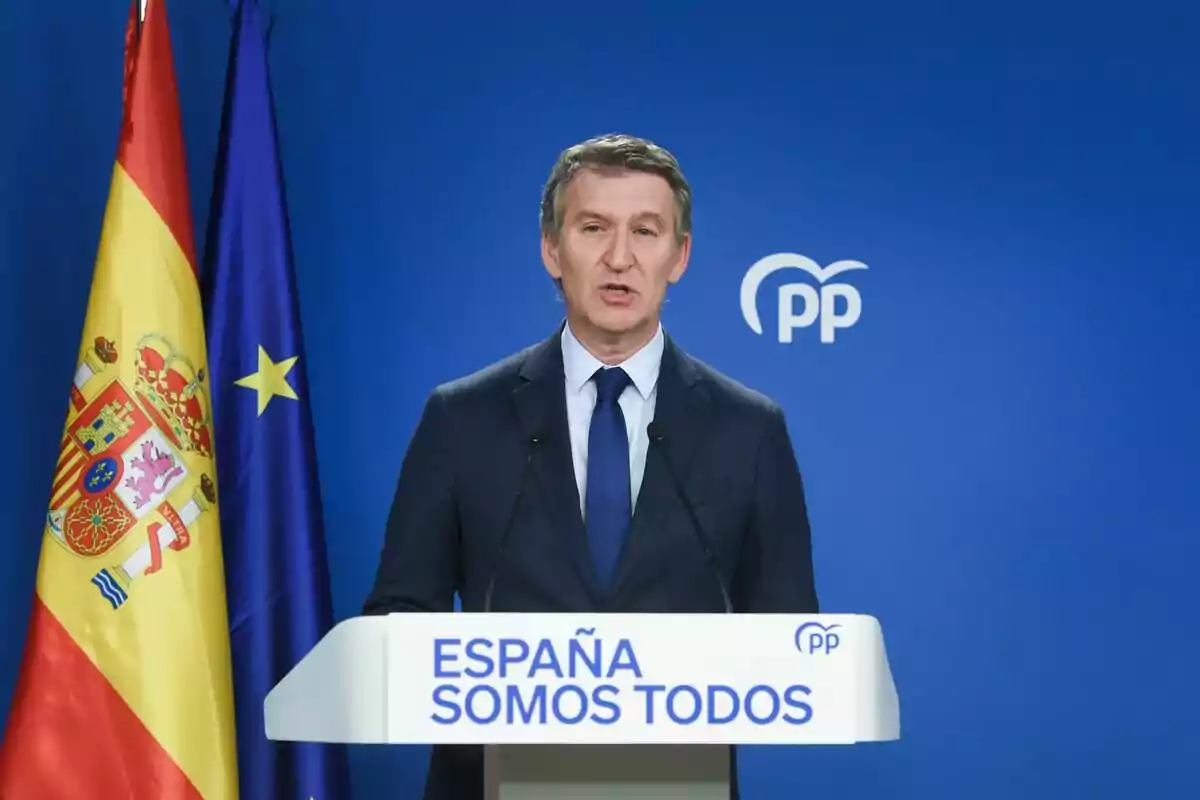
Feijóo's PP forced to abandon ambiguity
The shadows of Ayuso and Abascal are long, and a term in uncertainty becomes very long
The uncontrollable noise of current events has concealed one of the most important dynamics in current Spanish politics: the fate of PP. A systemic party with a leader who doesn't stand out for major movements, PP is truly stagnant. To understand this situation, one must go back to the first months of Feijóo in PP.
As many will remember, when Feijóo arrived in Genoa, the idea was circulating that Sánchez was dead, and that was why he had brought forward the general elections. It was that time when Michavila and other sociologists predicted an absolute and very comfortable majority for PP with Vox. This was an ideal scenario for someone with Feijóo's profile: little ideology, electoral movements that drag along, and a management discourse.

However, Sánchez, as usual, succeeded in his move to bring forward the elections, mainly because the strategy of fear with Vox worked for him. This led Feijóo to a complex situation, which was none other than being in opposition without a clear plan. Among his main problems was the competition from Vox and the solidity of the 'Frankenstein' Government, which is nothing more than a correlation of weak parties.
As political parties are machines that feed on power, the "internal murmur" (Díaz Ayuso) in PP was getting stronger. That is, Feijóo's ambiguity, so favored by the Galician base, doesn't have enough strength to withstand a legislature. This has led the party to organize the equivalent of a conclave for next July.

What do we think?
From a broader perspective, PP has to decide what discourse it will have within the new right. 'De facto,' this translates into clarifying the relationship with Vox, which in all respects is the party that has picked up the winds of the new global right. Because if something is undeniable, it is that, for now, in the chess game between PP and Vox, Vox is winning.
Even at the cost of breaking regional governments, hardening the discourse, and closing ranks with Trump, Vox's strategy has worked. The proof is that it has monopolized the young vote and the discourse on social media. Similarly, it shows slow but steady electoral growth, positioning it as PP's future government partner. What Feijóo doesn't want is for Abascal to succeed in doing what Iglesias initially wanted to do with Sánchez: set the discourse from within.
For this reason, the next PP congress will have a very ideological aroma, which, as it couldn't be otherwise, will translate into the struggle between sectors. On one hand, there is the sector more in favor of a more aggressive discourse, like Díaz Ayuso. On the other hand, there is the typically moderate sector of PP, which is nothing more than the inverse reflection of PP.
Immigration, a sanitary cordon to Vox, euthanasia, abortion: these are the kinds of issues on which Feijóo has to take a stand. Parallel to this, he also has to modify the internal regulations and procedures. This, which may seem irrelevant, is of paramount importance and, in the long term, could mean Feijóo's success or downfall.

The internal regulations are responsible for defining the procedure for primaries and leader selection. There are two possibilities: selection by delegates or by direct vote of the membership. Feijóo, who knows he doesn't inspire passion, prefers the vote by delegates because it is easier to control from the leadership. But, someone like Ayuso, on the other hand, prefers the direct vote of the membership.
Finally, this whole situation is spiced up with the surprise factor of Pedro Sánchez, who might bring forward elections or retreat to think for a few days. In this context, the worst thing that could happen to Feijóo would be to repeat what happened in 2023, that is, for Sánchez to catch him off guard. The difference is that now PP couldn't afford another defeat due to balancing acts.
More posts: